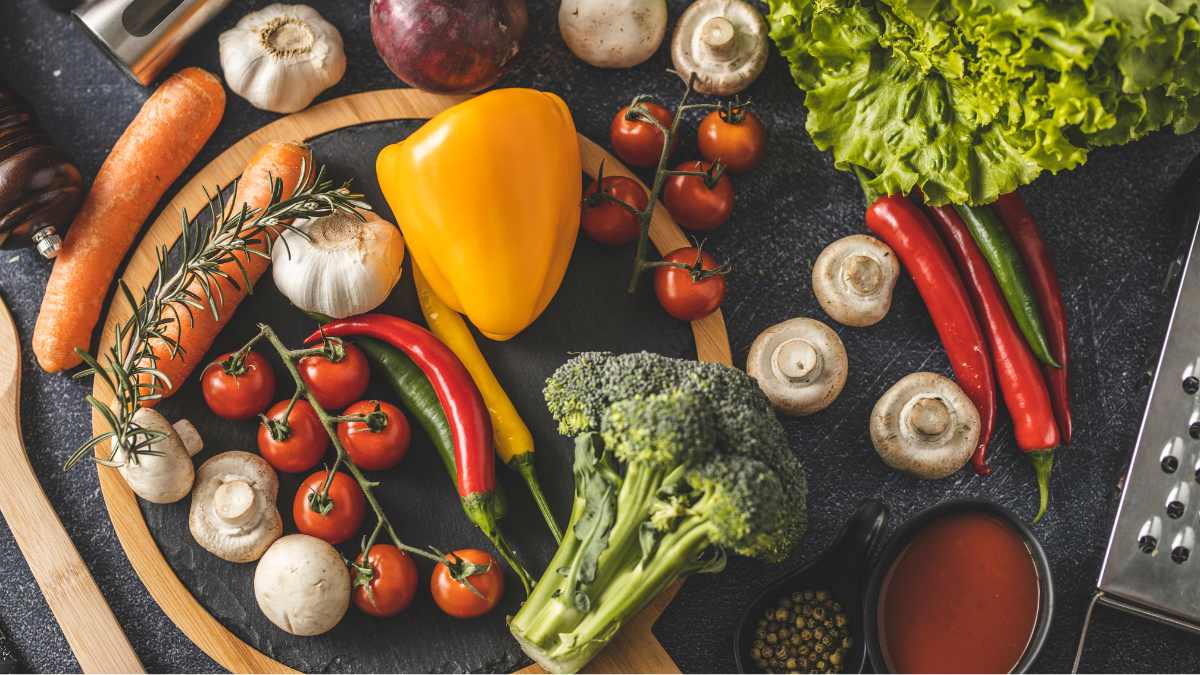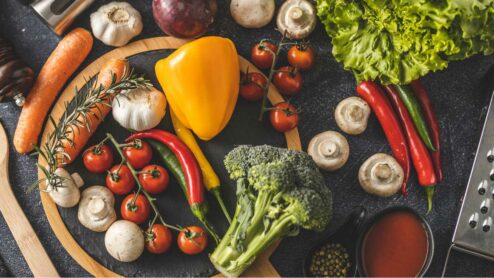Introduction: The question of whether vegetarians can consume ghee is a topic that often sparks debate among dietary circles. Ghee, a type of clarified butter, holds a significant place in various culinary traditions, especially in Indian cuisine. However, its animal-derived origin raises questions about its compatibility with vegetarian diets. This article delves into the nuances of vegetarianism, the composition and production of ghee, and the ethical considerations surrounding its consumption.
Introduction to Vegetarianism and Dietary Choices
Vegetarianism, as a dietary choice, involves abstaining from the consumption of meat, poultry, and fish. The reasons behind adopting a vegetarian diet are diverse, ranging from health benefits to ethical and environmental concerns. Within vegetarianism, there are several subcategories, including lacto-vegetarianism, ovo-vegetarianism, and lacto-ovo vegetarianism, each with its own set of permissible foods.
Lacto-vegetarians, for instance, consume dairy products but avoid eggs, while ovo-vegetarians do the opposite. Lacto-ovo vegetarians include both dairy and eggs in their diets. These distinctions are crucial when considering whether ghee, a dairy product, fits into a vegetarian lifestyle. The inclusion of dairy products like ghee is generally accepted in lacto and lacto-ovo vegetarian diets.
The choice to include or exclude certain foods often depends on personal beliefs and cultural practices. For many vegetarians, the decision to consume dairy products hinges on ethical considerations regarding animal welfare and environmental impact. Understanding these motivations helps in assessing whether ghee aligns with vegetarian principles.
Ultimately, the compatibility of ghee with vegetarian diets is not a one-size-fits-all answer. It requires a nuanced understanding of vegetarianism’s various forms and the personal choices that individuals make within these frameworks.
Understanding Ghee: Composition and Production
Ghee is a type of clarified butter that originates from the Indian subcontinent. It is made by simmering butter to separate the milk solids and water, leaving behind pure butterfat. This process not only enhances the flavor but also increases the shelf life of the butterfat, making ghee a staple in many traditional cuisines.
The production of ghee involves heating butter until the water evaporates and the milk solids settle at the bottom. The remaining liquid is then strained to remove the solids, resulting in a clear, golden liquid known as ghee. This process intensifies the buttery flavor and imparts a nutty aroma to the final product.
Ghee is rich in saturated fats and contains fat-soluble vitamins such as A, D, E, and K. It is also known for its high smoke point, making it ideal for cooking at high temperatures. These qualities contribute to its popularity in both culinary and medicinal applications.
Despite its many benefits, the fact that ghee is derived from butter, which in turn comes from milk, raises questions about its suitability for vegetarians. Understanding the production process and composition of ghee is essential for making informed dietary choices.
Ghee in Vegetarian Diets: Traditional Perspectives
In many traditional vegetarian diets, especially those rooted in Indian culture, ghee is considered an essential ingredient. It is used in a variety of dishes, from curries and rice to sweets and breads. Ghee is also revered in Ayurvedic medicine for its purported health benefits, including improved digestion and enhanced immunity.
The use of ghee in vegetarian diets is often linked to cultural and religious practices. For instance, in Hinduism, ghee is used in rituals and offerings, symbolizing purity and nourishment. This cultural significance often influences dietary choices, making ghee a permissible and even revered component of vegetarian diets.
However, the acceptance of ghee in vegetarian diets is not universal. Some vegetarians, particularly those who follow a vegan lifestyle, avoid all animal-derived products, including ghee. For these individuals, the consumption of ghee contradicts their ethical stance against animal exploitation.
The traditional perspective on ghee in vegetarian diets highlights the diversity of beliefs and practices within vegetarianism. While ghee is widely accepted in some vegetarian traditions, it is eschewed in others, reflecting the complex interplay between culture, religion, and dietary choices.
Analyzing Ghee: Is It Plant-Based or Animal-Derived?
To determine whether ghee is suitable for vegetarians, it is crucial to analyze its origin. Ghee is unequivocally an animal-derived product, as it is made from butter, which in turn is produced from cow’s milk. This animal origin places ghee in the category of dairy products, making it incompatible with vegan diets.
While ghee is not plant-based, it is important to note that it does not contain any meat or meat by-products. This distinction is significant for lacto-vegetarians and lacto-ovo vegetarians, who include dairy in their diets. For these individuals, ghee is considered an acceptable food item.
The animal-derived nature of ghee raises ethical questions for some vegetarians. Concerns about animal welfare, the environmental impact of dairy farming, and the potential for lactose intolerance are factors that influence the decision to consume ghee. These considerations vary among individuals and are often shaped by personal values and beliefs.
In summary, while ghee is not plant-based, its acceptance in vegetarian diets depends on the specific type of vegetarianism practiced. Lacto-vegetarians and lacto-ovo vegetarians may find ghee compatible with their dietary choices, whereas vegans and other strict vegetarians may choose to avoid it.
Nutritional Aspects of Ghee for Vegetarians
Ghee is a nutrient-dense food, providing a concentrated source of energy and essential vitamins. It is rich in saturated fats, which are necessary for the absorption of fat-soluble vitamins such as A, D, E, and K. These vitamins play crucial roles in maintaining vision, bone health, immune function, and skin health.
For vegetarians, ghee can be a valuable addition to the diet, particularly if other sources of these vitamins are limited. The high caloric content of ghee also makes it an excellent energy source, which can be beneficial for individuals with high energy needs, such as athletes or those with physically demanding lifestyles.
However, the consumption of ghee should be moderated due to its high saturated fat content. Excessive intake of saturated fats is associated with an increased risk of heart disease and other health issues. Therefore, it is important for vegetarians to balance their intake of ghee with other healthy fats, such as those found in nuts, seeds, and avocados.
Incorporating ghee into a balanced vegetarian diet can provide nutritional benefits, but it should be done mindfully. Understanding the nutritional profile of ghee helps vegetarians make informed choices about its inclusion in their diets.
Ethical Considerations for Vegetarians Consuming Ghee
The ethical considerations surrounding the consumption of ghee are multifaceted. For many vegetarians, the primary concern is animal welfare. The dairy industry, which produces the milk used to make butter and ghee, has been criticized for practices that can harm animals, such as confinement, forced breeding, and early separation of calves from their mothers.
Environmental impact is another ethical consideration. Dairy farming contributes to greenhouse gas emissions, water pollution, and land degradation. These environmental concerns lead some vegetarians to question the sustainability of consuming dairy products, including ghee.
Additionally, the production of ghee involves the use of animal-derived ingredients, which may conflict with the ethical principles of vegetarians who strive to minimize harm to animals. For these individuals, alternatives to ghee, such as plant-based oils or vegan butter substitutes, may be more aligned with their values.
Ultimately, the decision to consume ghee involves weighing these ethical considerations against personal dietary preferences and cultural practices. Each vegetarian must decide for themselves whether ghee aligns with their ethical beliefs and dietary goals.
Conclusion: The question of whether vegetarians can eat ghee is complex and depends on various factors, including the type of vegetarianism practiced, cultural and religious beliefs, nutritional needs, and ethical considerations. While ghee is an animal-derived product, it is widely accepted in lacto-vegetarian and lacto-ovo vegetarian diets. However, for vegans and other strict vegetarians, ghee may not be compatible with their dietary choices. Understanding the composition, production, and ethical implications of ghee helps vegetarians make informed decisions about its place in their diets.
More Information
-
Vegetarian Society: What is a Vegetarian?
- https://www.vegsoc.org/info-hub/definition/
- This source provides a comprehensive overview of the different types of vegetarianism and their dietary restrictions.
-
Healthline: What Is Ghee and How Is It Used?
- https://www.healthline.com/nutrition/what-is-ghee
- This article explains the composition, production, and nutritional benefits of ghee.
-
Ayurveda: The Benefits of Ghee
- https://www.ayurveda.com/resources/articles/the-benefits-of-ghee
- This source explores the traditional uses of ghee in Ayurvedic medicine and its health benefits.
-
PETA: Dairy Industry Exposed
- https://www.peta.org/issues/animals-used-for-food/dairy/
- This article discusses the ethical concerns related to the dairy industry, which are relevant for vegetarians considering ghee.
-
Environmental Impact of Dairy Farming
- https://www.worldwildlife.org/industries/dairy
- This source provides information on the environmental impact of dairy farming, helping vegetarians understand the sustainability issues associated with ghee consumption.


